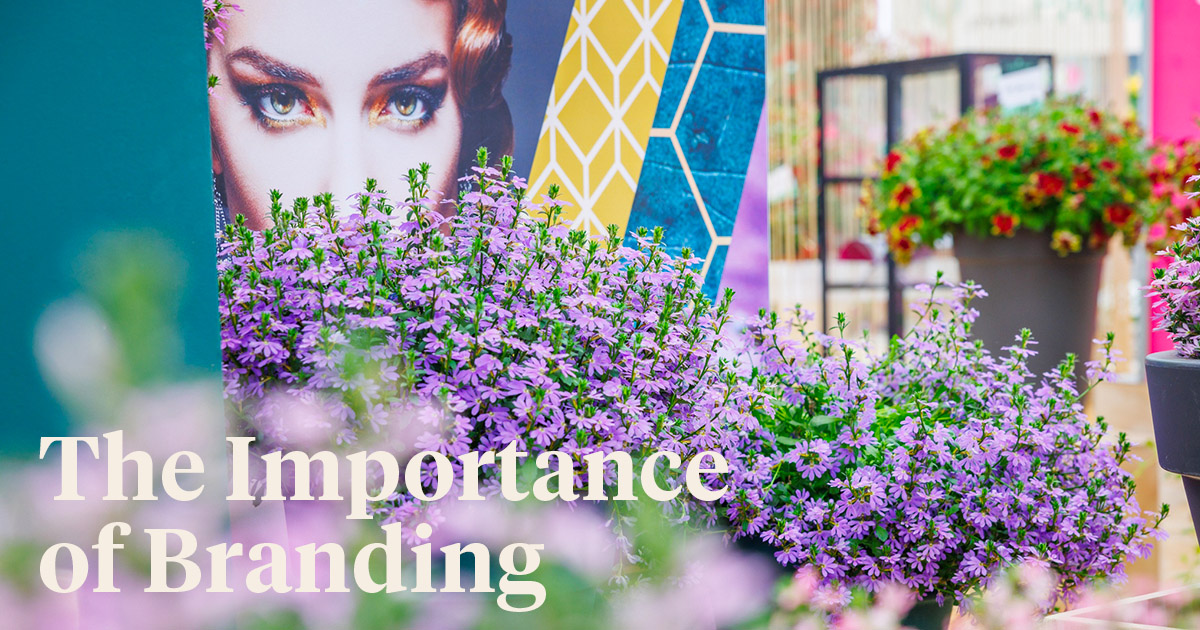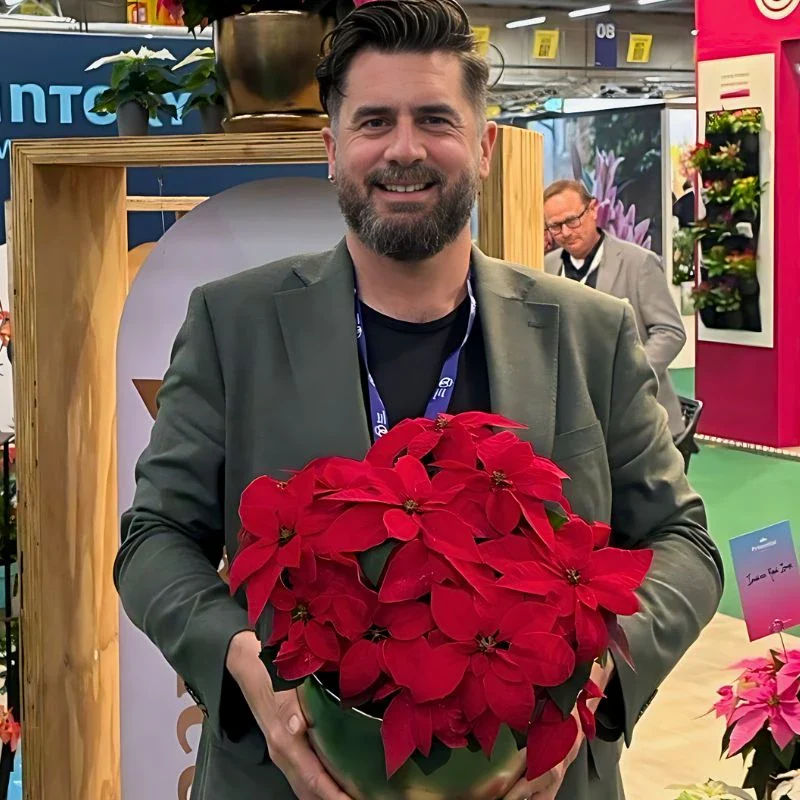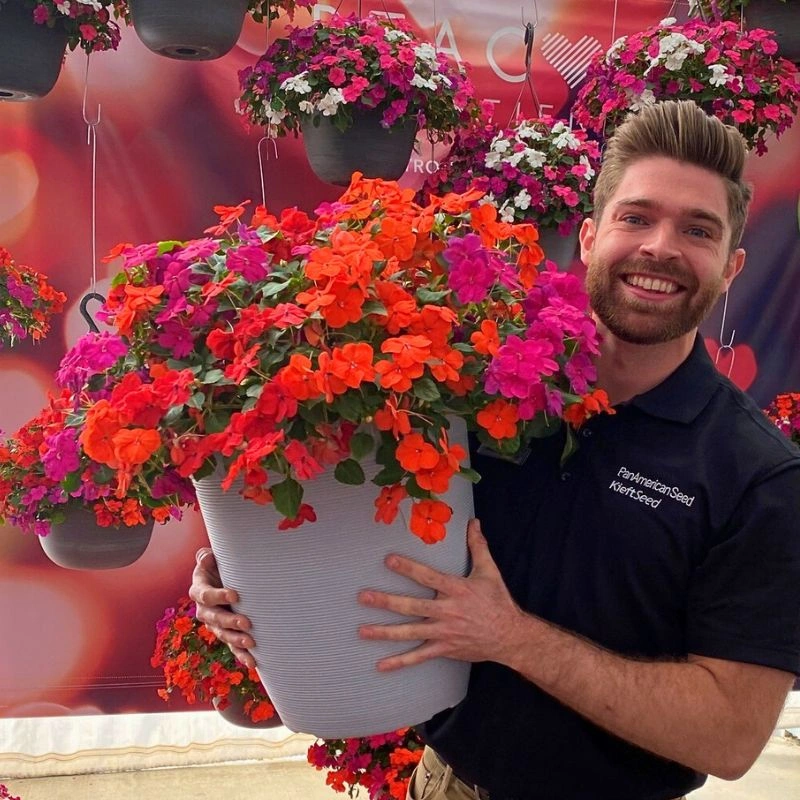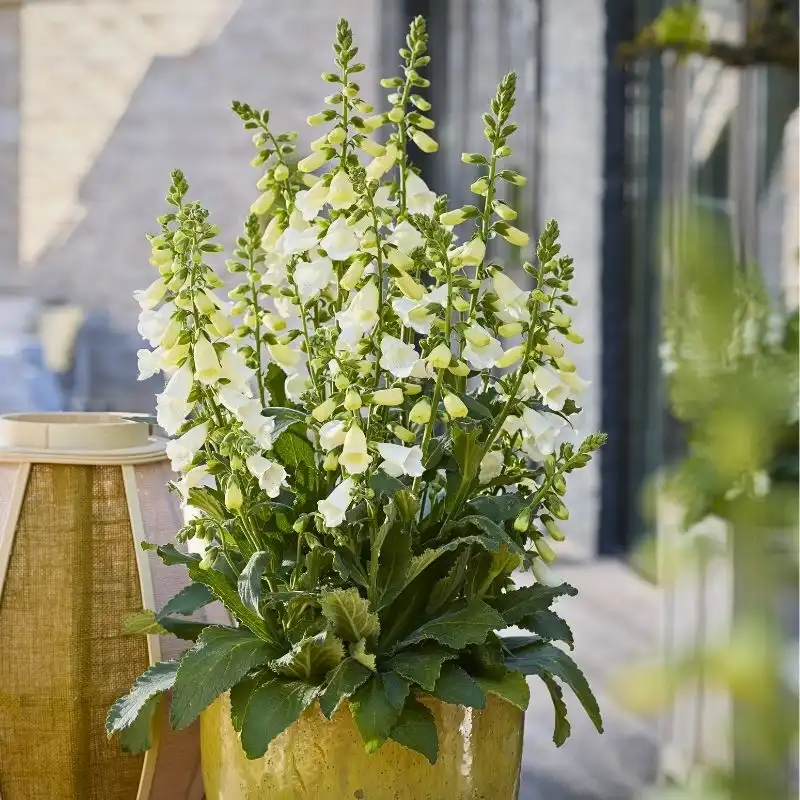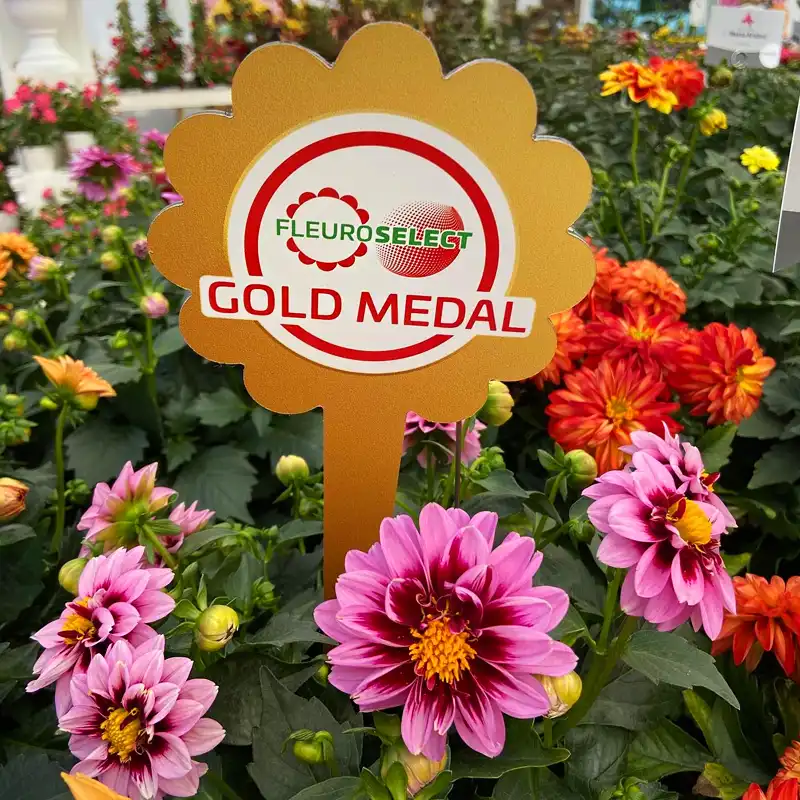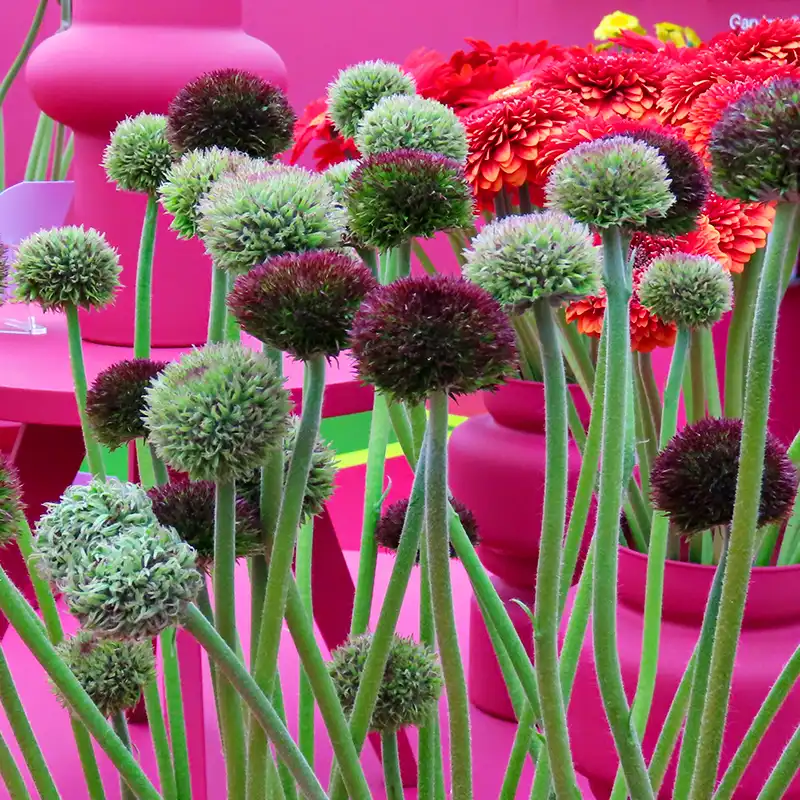As long as there has been marketing, branding exists. To be honest, branding already existed centuries ago when the ancient Egyptians marked their cattle with a 'brand'. This way they could see which animals belonged to them in which ones to the neighbors.
A brand or a label makes your product stand out from the rest. A brand has an identity that helps you communicate more easily with your (potential) customers.
So, what are exactly the pros of having your own brand? In this article, we use a case study of several MNP / Suntory brands to explain the added value of branding, as well as points to consider on how to protect your properties from anyone who tries to tag along with your success, using your brand.
Brand Design
In floriculture, we know many brands; some really successful ones too. Many breeders are specializing more and more in brand design. If they do this right, the reward is to gain a position where the brand values and image makes people ask no more for the flower or plant, but for your brand.

But what is brand design?
When you start with marketing, one of the things you do is branding: to build, load, and maintain a brand. Brand design is the process of developing your brand by working with a professional company like ZillionDesigns for instance, so forming and shaping it. You will see along the way you have to take care of many things while building and activating your brand, such as its identity and image in the eyes of your target group. There is a whole strategy involved when you want to implement a brand successfully. But it can be highly rewarded with uniqueness and added value.
Since more and more products look similar in a world where everything is always available everywhere, designing a brand has become important. Everyone can grow a Mandevilla — by some still named Dipladenia —, but only one single breeder has the exclusive right to its own high-quality product line of Sundaville®; that is MNP / Suntory. Did you notice the ® in the name Sundaville®? That means the product is in fact a registered brand. You see these marks also in the shape of © or ™. All these mean that you are not simply allowed to use this name.
But we all know this, don't we? Still, how is it then possible that so often the name Sundaville (with or without the ®) is seen on webshops, and in garden centers, cash & carries, and flower shops? Is it negligence, or simply ill-will to profit from an established and successful label trying to sell some substitute to an ignorant florist or consumer? For sure, any infringement of a brand's identity or image could damage the value of the brand and its products, a thing that any owner of any brand wants to prevent.
Besides its illegality, it is an unfair way of doing business, when you realize that the breeder has put a lot of time, effort, and expertise into the R&D of a beautiful product of which he is so proud he branded it.

The MNP / Suntory Case Study
MNP / Suntory defines itself as a company whose mission is to be a trendsetter in breeding, selecting, marketing, and licensing of innovative superior quality bedding plants. Those who already know its story and company in Leimuiderbrug, Netherlands, know also the effort MNP and Suntory put into effectively brand marketing the new products coming to the market.
Erwin Giezen, Head of Marketing, Communications & Trade at MNP / Suntory:
"Some people take for granted every year we are presenting new products coming into the market. That is happening most of the time; our work is a never-ending activity to reach the best quality and innovation. However, so many novelties are introduced and presented to the market without a registered trademark, a designed brand identity, or a message to convey to the audience. However, nowadays is important to express how and why we do what we do here at MNP / Suntory."

For many years already, this breeder has recognized the importance for floriculture professionals of knowing the difference between multiple varieties and different brands. This started already with the Japanese company Suntory, which was one of the pioneering industries in the development of labels for alcohol and soft drinks products of its production. Suntory has extended this practice to the floriculture industry of its own breeding genetics.
MNP in the Netherlands develops concepts from the genetics and products of Suntory Flowers to match the floricultural products, conveying through brand names, colors, and campaigns the values these products then communicate to the end consumers. The effort that MNP puts into the design, thinking, and payoffs is then put to good use in the official registration of the trademark. This applies to all products marketed by this Dutch/Japanese company.
Branding involves trademark declaration, registration, and intellectual property. MNP / Suntory defines itself as the house of brands for this reason. Surfinia® was the first in a long series of well-known brands throughout Europe, followed by Sundaville®, Beedance®, Soirée®, MillionBells®, Princettia®, Granvia®, Grandaisy®, Senetti®, Lofos®, Sunpuma®, Surdiva®, Stardiva® and more.

From Dipladenia to Mandevilla to Sundaville®
Is each genetics a different brand? Most of the time it is. Professionals in floriculture must know the difference between the botanical name of the plant and the genetics, and therefore the brand name. Take the example of Mandevilla Dipladenia Sundaville®. The names Sundaville®, Mandevilla, and Dipladenia are often mistakenly used interchangeably.
Dipladenia is still often used colloquially, especially in Germany, Italy, and Spain. But it is the old name for all mandevilla species because Dipladenia no longer exists as a botanical family.
However, Dipladenia often still refers to the old species with woody, coarse leaves, and climbing hard with sporadic flowers. The group of Dipladenia became so large that people changed the classification and the species that are now commercial are all referred to as Mandevilla. This, in turn, contains fifty branching species such as Mandevilla boliviensis or Mandevilla sanderi.
Sundaville® is a brand of Mandevilla boliviensis and sanderi crosses. Just as Ferarri® is a brand in the sports car sub-category of the main group of automobiles. People know when they buy a Ferarri® or a Fiat®. So would it be more difficult to choose between a Mandevilla and a Sundaville® for an industry professional? Probably not. Still, even in large garden centers or on the internet, the name of the brand is often incorrectly stated. MNP / Suntory believes it is important to set this straight because otherwise, a consumer does not know what he or she is buying, the metaphorical Ferarri® or Fiat®? So MNP / Suntory advises to always look carefully at the back of the label.

Helping Consumers Make a Good Choice
Erwin Giezen:
"As introducers and breeders, we welcome the existence of a database that is as complete as possible when it comes to varieties so that people can make a good choice. It is of great importance to us and we work hard every day to ensure that our varieties, brand names, and images are protected and also that there is a correct representation of genus, variety, and brand descriptions. So a database like this helps in a positive sense."
This applies to all MNP / Suntory brands. They are internationally protected by trademark law, enjoy a complete variety protection, and are owned by Suntory Flowers Ltd. These brands may, therefore, only be used for Suntory genetics. This also applies to the use of accompanying jars and labels, and online whether trademark law is not being abused.
Brand personality, design, and recognisability are reflected in storytelling, and promo materials such as POS in garden centers or online presence. This is valuable for everyone in the industry. The topic can go further, not only to Suntory Genetics but to all breeding companies that register their brands.

Warning Against Trademark Abuse & Illegal Multiplication
Following breeding company Selecta One, also MNP / Suntory warns against trademark abuse and illegal propagation of its plant breeder and trademark-protected varieties in Europe, the Middle East, and Africa. They have recently noticed several accidents concerning their brands and even productions. It may sound strict and is not a nice message, but the company considers it necessary to take legal action if it finds infringement and misuse of the names or illegal productions.
MNP / Suntory works with the Netherlands Environmental Assessment Agency (PBL), Fleuroselect, and Royalty Administration International (RAI). Globally operating specialists in Plant Breeders' Rights, licensing agreements, and royalties.
Erwin Giezen:
"We also will not accept any violation of our intellectual property and trademark rights."

Awareness First
MNP / Suntory claims compensation based on infringement of its rights. Giezen states that there is a lack of income from the sale of cuttings and a lack of royalties due to area overruns. Damage is also claimed by not reporting the destruction.
Erwin Giezen:
"Please note that the aim is not to lecture individual growers, traders, or (online) retailers but to clarify to the entire industry that illegal propagation and brand abuse will not be tolerated.
It is in the interest of everyone in the chain, whether on the production, distribution or sales side, that only plants on which royalties have been paid and where trademark law are respected are brought onto the market. The end consumer must be able to trust that they are buying an A-brand plant that has been produced legally."

Investments in Breeding and Branding
MNP / Suntory and its employees invest a lot of love, time, know-how, and money in breeding, selection, and branding to market innovative, high-quality, recognizable brands.
Erwin Giezen:
"We must stand up for ourselves and our growers, traders, and retailers because they can realize a more significant margin, and the end consumer gets more value for their money. The license fee is a fair way to share development and marketing costs."

Whistleblower Tipline
Finally, Giezen likes to point out the Fleuroselect whistleblower tipline to help make floriculture a more honest and transparent marketplace where good quality and good conduct are rewarded, stimulating progress and innovation that will bring the whole industry forward.
Erwin Giezen:
"If you have received plants without a brand label, please let us know the origin of these plants. This way, we can contact the manufacturer and distributor to request further information and take appropriate action. A whistleblower tip line has also been set up where people can report suspected illegal propagation. The tip line is open to anyone working in the production and distribution of plants. This can be done in the following ways:
- By calling the special tip line: 085-0645251
- By sending an email to tips@fleuroselect.com
- By completing the special form on the Fleuroselect website
All incoming tips are treated confidentially and forwarded to the Fleuroselect secretariat. The informant's name will always remain a secret. The tips are screened and passed on to Royalty Administration International, which may or may not include the reports in the series of visits to randomly selected farms."
PS. As a source for a well-thought-out branding strategy, the book Brand Design by Ruud Boer from BTM might be a good starting point.

